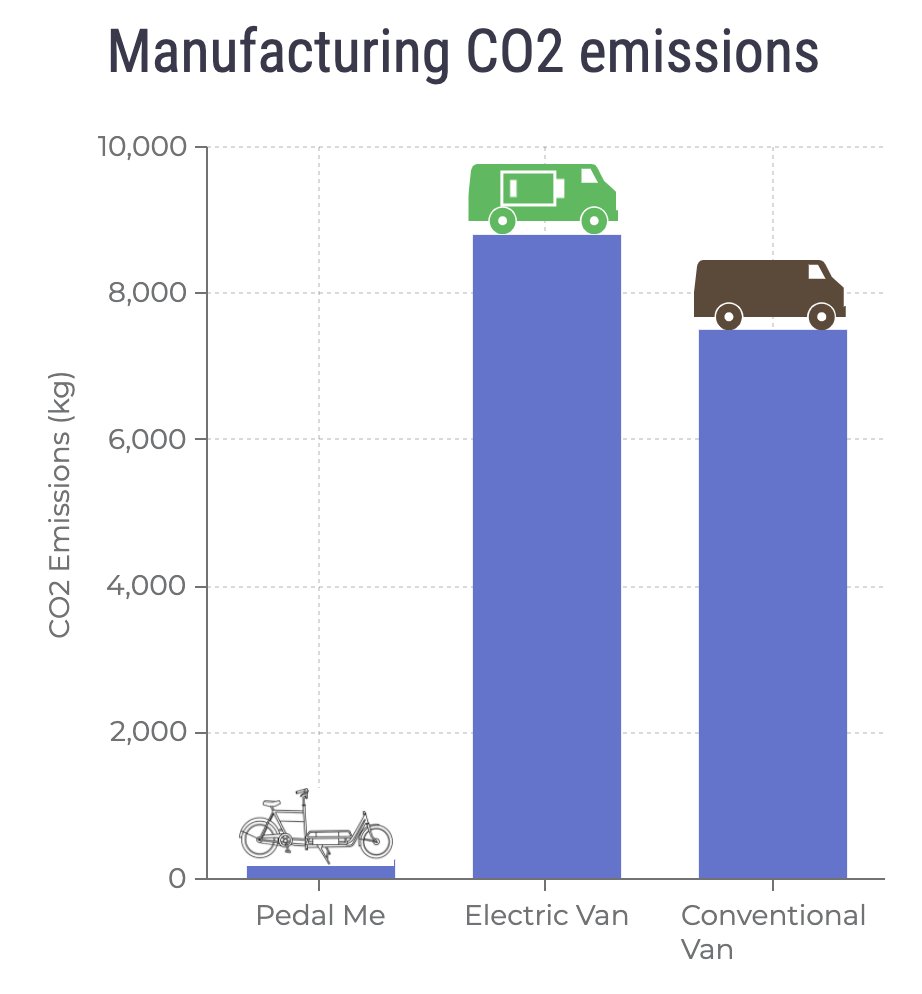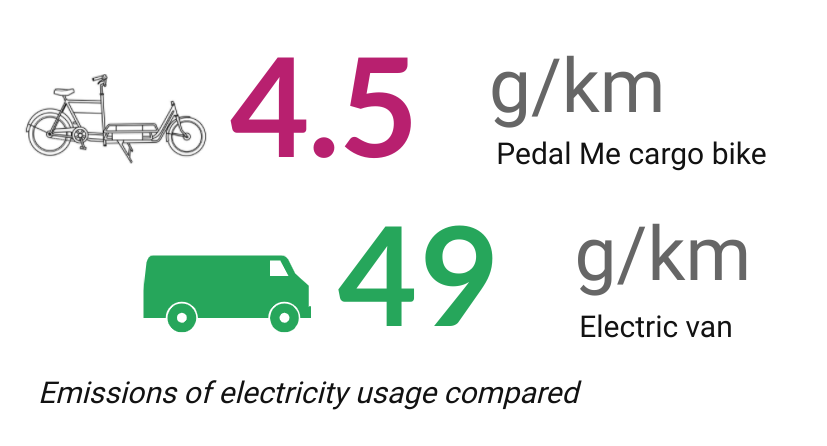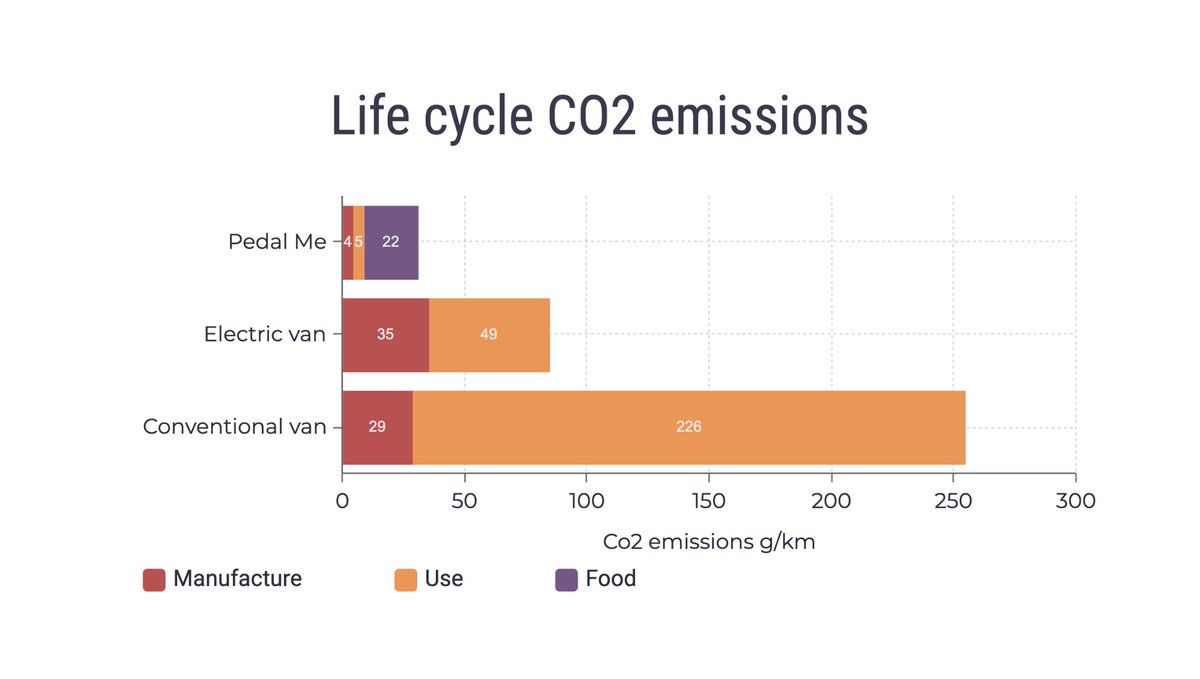In December, our riders covered close to 25,000km. We've been loud about cargo bikes being the most efficient way of doing logistics in cities. They're also the most CO2 efficient technology. Last month, we saved about 6t of CO2 just by doing our job.
Thread & article below
Thread & article below

2/7 Electric vehicles are painted as the future of urban mobility by many. To us, it's clear they won't solve congestion, pollution, road safety, or give back the living space that's given to cars.
in our article, we compare their CO2 emissions with bikes https://pedalme.co.uk/carbon-emissions/
in our article, we compare their CO2 emissions with bikes https://pedalme.co.uk/carbon-emissions/
3/7 Electric vans emit ~32x more CO2 through manufacturing than our bikes (8800kg vs 280kg). Choosing to move things in big metal boxes comes at a cost, and that starts from the moment we start building them.
4/7 The battery pack on a standard EV is 80 times bigger than on a cargo bike. A large scale switch to electric will cause severe environmental damage as the demand for resources skyrockets. https://www.theguardian.com/news/2020/dec/08/the-curse-of-white-oil-electric-vehicles-dirty-secret-lithium
5/7 EVs use approximately 10x more electricity than a cargo bike per km, at 50g/km. While this figure may go down with efforts to clean up the grid, it will be a slow process. Cargo bikes are available now.
6/7 To play devil's advocate we added the extra kcals burned by riders (approx 22g of CO2 per km). It's unclear the lifestyle of riders leads to more CO2 & outside the scope of our analysis. But we know they don't need a car to go around London + they're healthier and happier.
7/7 Even with extra food factored in, EVs emit nearly 3x as much CO2 as cargo bikes. A standard van produces 8x the emissions. The difference in CO2 means our cargo bikes could be ridden for >300,000km before they reach the emissions of a new e-van rolling out of the factory.
cc: analysis by Dan Nowak, animation by @nccollignon

 Read on Twitter
Read on Twitter




